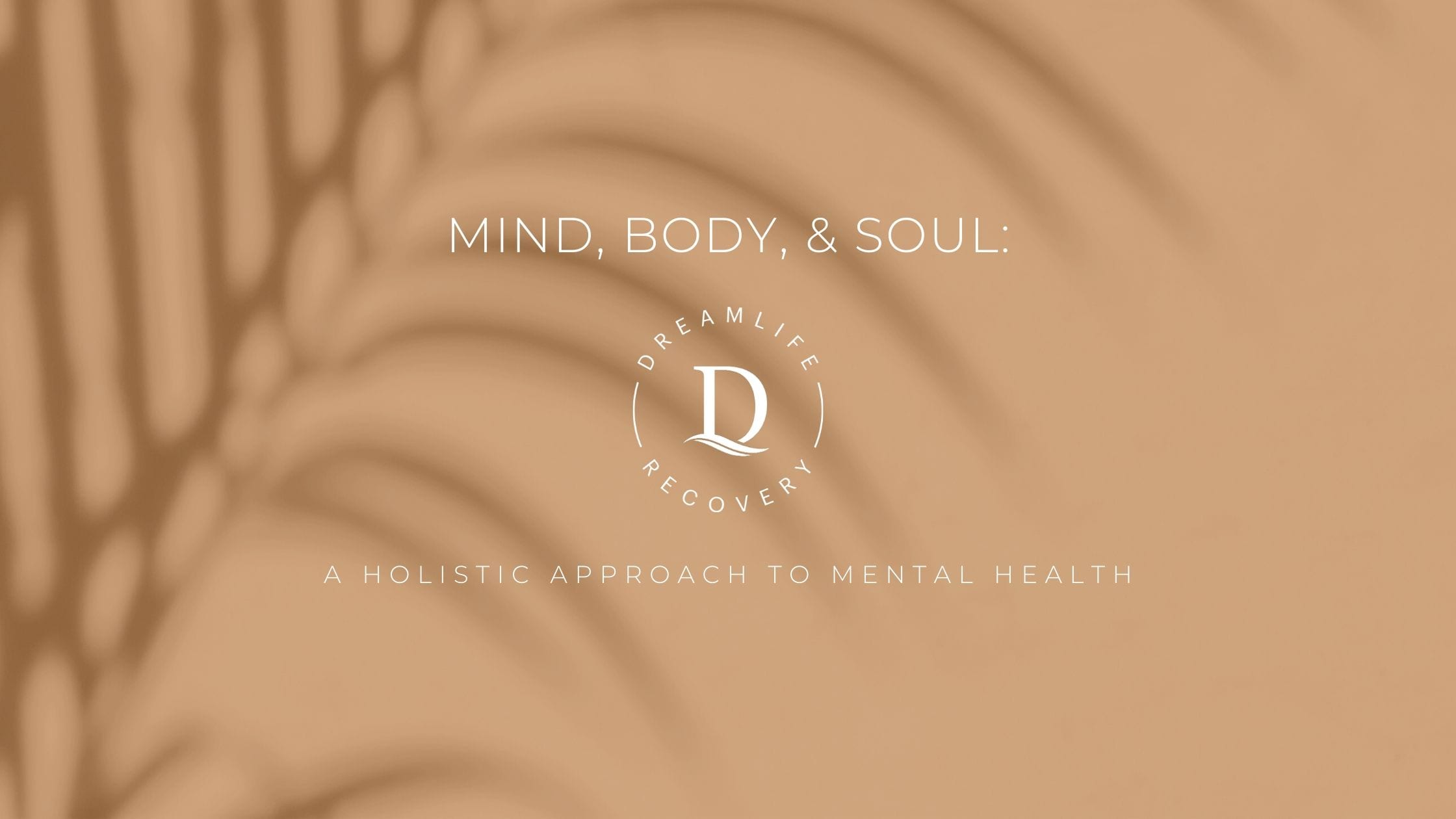Mind, Body, Soul: A Holistic Approach to Mental Health


Written By
DreamLife RecoveryWhen you hear the word “holistic,” what do you think? You may associate it with an organic health food store or barefoot yogis chanting “OM” together with their eyes closed.
Taking a “holistic approach” to something means looking at the whole situation and not just one or two parts. When it comes to mental health, a holistic approach considers how a person’s well-being is affected by their physical, psychological, emotional, social, and spiritual condition. A holistic approach to mental health will treat all these elements as pieces of a larger puzzle that must be individually addressed to achieve healing, which is something that traditional medicine doesn’t always do.
Addressing underlying mental health issues is essential for a successful recovery. While traditional avenues such as talk therapy and prescription medications can be highly effective for treating mental health conditions like anxiety, depression, and PTSD, a holistic approach can add alternative therapies that prove to be beneficial.
Holistic Mind, Body and Spirit Therapy Options
Here is a list of some alternative therapies you might try as you work on ways to improve mental health by reducing stress and increasing your awareness of your reactions to things outside of your control:
- Yoga Therapy – Through a combination of yoga poses, breathwork, meditation, and sometimes guided imagery, yoga therapy increases the body-mind connection, self-awareness, flexibility, and more to significantly improve physical and mental health. It can help with back pain, fatigue, anxiety, depression, and stress.
- Hypnotherapy – A trained hypnotherapist will guide a client into a state of deep relaxation to bring the person into a hypnotic state in order to address repressed thoughts, feelings, or memories and reprogram behavior.
- Energy Healing – This is an all-encompassing category for a range of practices that may include acupuncture, Reiki, Qi Gong, Tai Chi, Healing Touch, and other methods that aim to work with the body’s energy channels to remove blockages and stimulate natural healing processes.
- Art Therapy – By drawing on the power of visual language, people can express themselves artistically to improve self-esteem, reduce stress, increase self-awareness, and resolve personal issues. This may be accomplished by using art materials such as chalk, paint, clay, and many other mediums.
- Music Therapy – Trained music therapists will use a combination of listening to and creating music with an individual. Through creative expression, one can heal from traumas, anxiety, depression, and any other conditions.
- Equine Therapy – Individuals work with horses to develop self-esteem, practice empathy, and address issues with control and fear that may stem from past traumas.
Holistic Addiction Treatment Methods at DreamLife Recovery
At DreamLife Recovery, we believe in the power of taking a holistic approach to treatment. We combine evidence-based treatment methods with alternative healing therapies to address the full spectrum of needs our clients may have during their time with us.
Each individual is unique, and we find that offering a range of treatment methods helps each person to discover what works best for them. We offer alternative therapies like yoga, energy healing, hypnotherapy, sound therapy, art therapy, and equine therapy.
We believe that our holistic approach to mental health will set our clients up for long-term, lasting recovery from addiction.
If you or a loved one are struggling with addiction, call DreamLife Recovery at (844) 402-3592.
Resources:
- “Holistic Nursing: Engaging the Five Senses for Emotional Health” – Gutierrez, Carol E. RN, MS, LMT; Emotional Health and Wellbeing, CNE; June 2017
- “How Stress Affects Your Mental Health” – DiSalvo, David; Forbes, 15 October, 2012
- “Stress Management” – Mayo Clinic, 4 April, 2019
- How stress affects your health. American Psychological Association. https://www.apa.org/helpcenter/stress. Accessed March 5, 2019
- Cabral, P., Meyer, H. B., & Ames, D. (2011). Effectiveness of Yoga therapy as a complementary treatment for major psychiatric disorders: a meta-analysis. The Primary Care Companion for CNS Disorders, 13(4). doi:10.4088/PCC.10r01068






